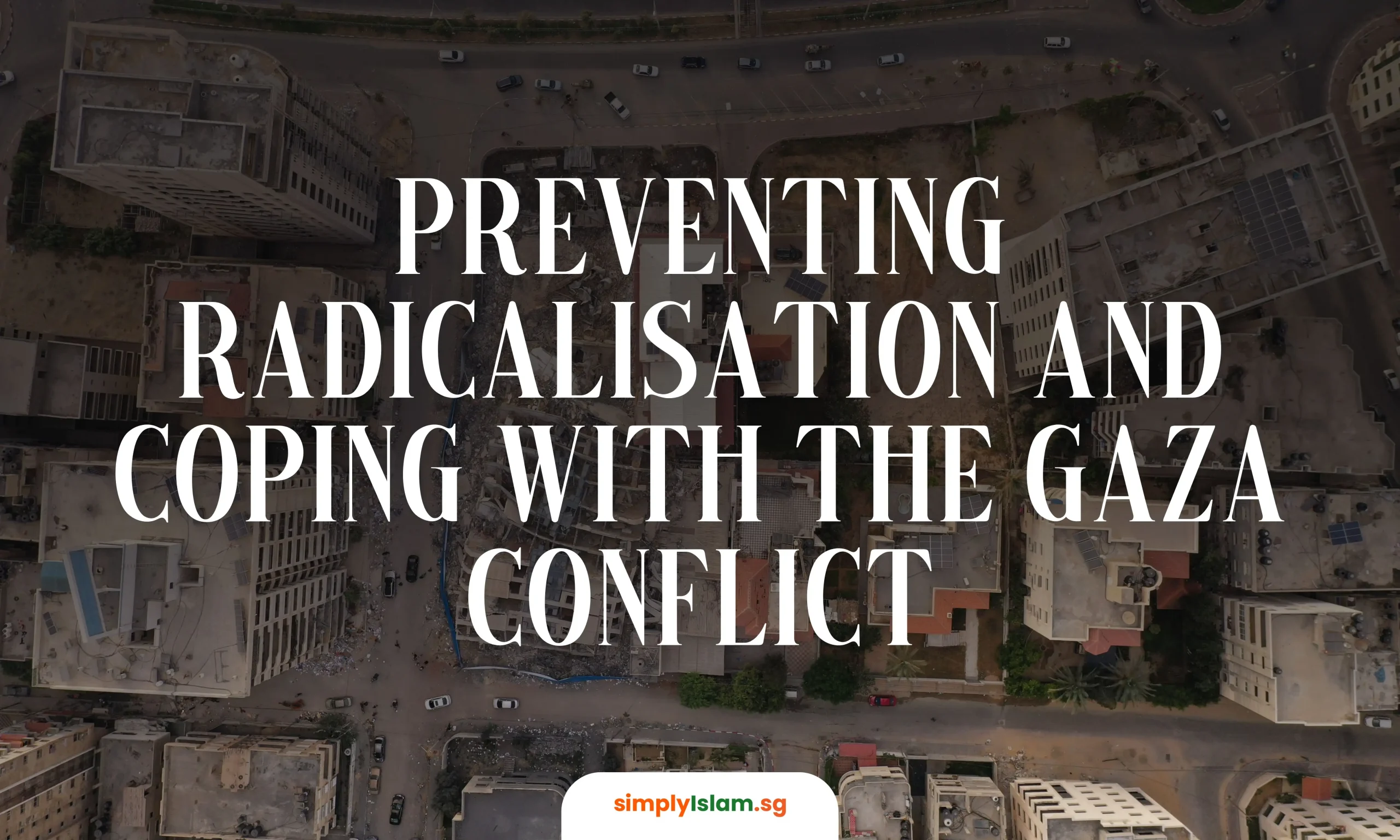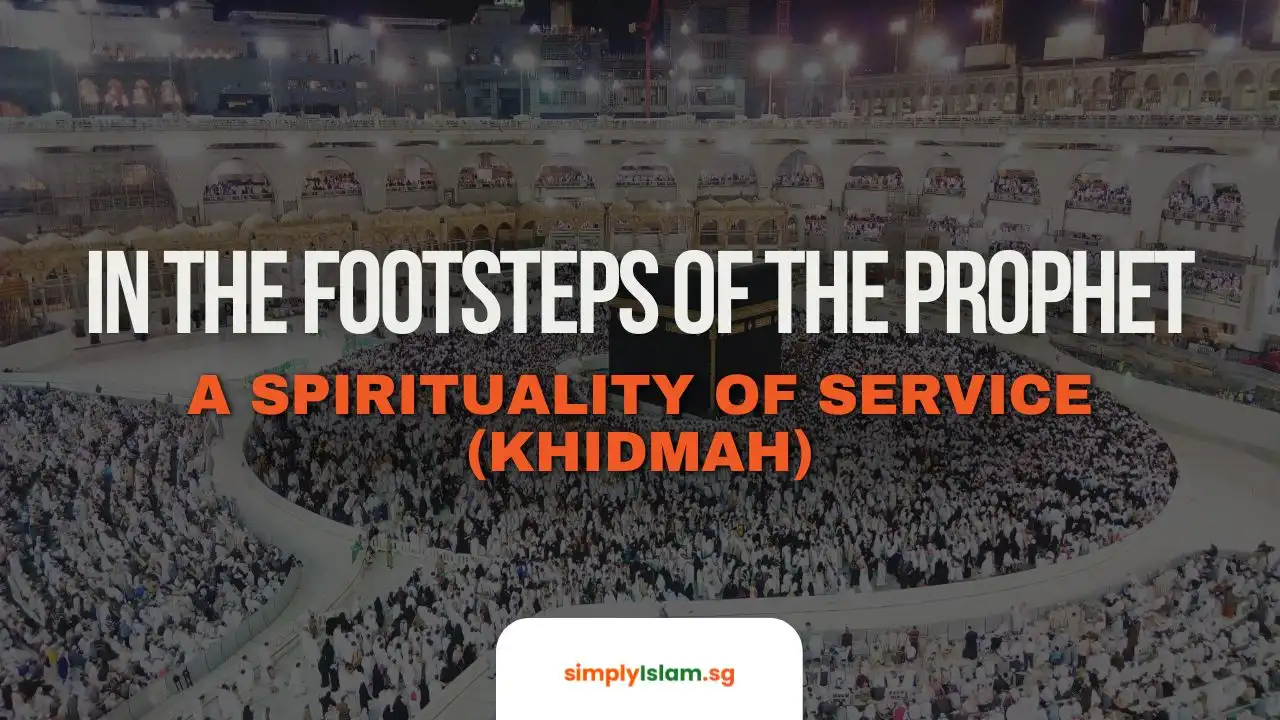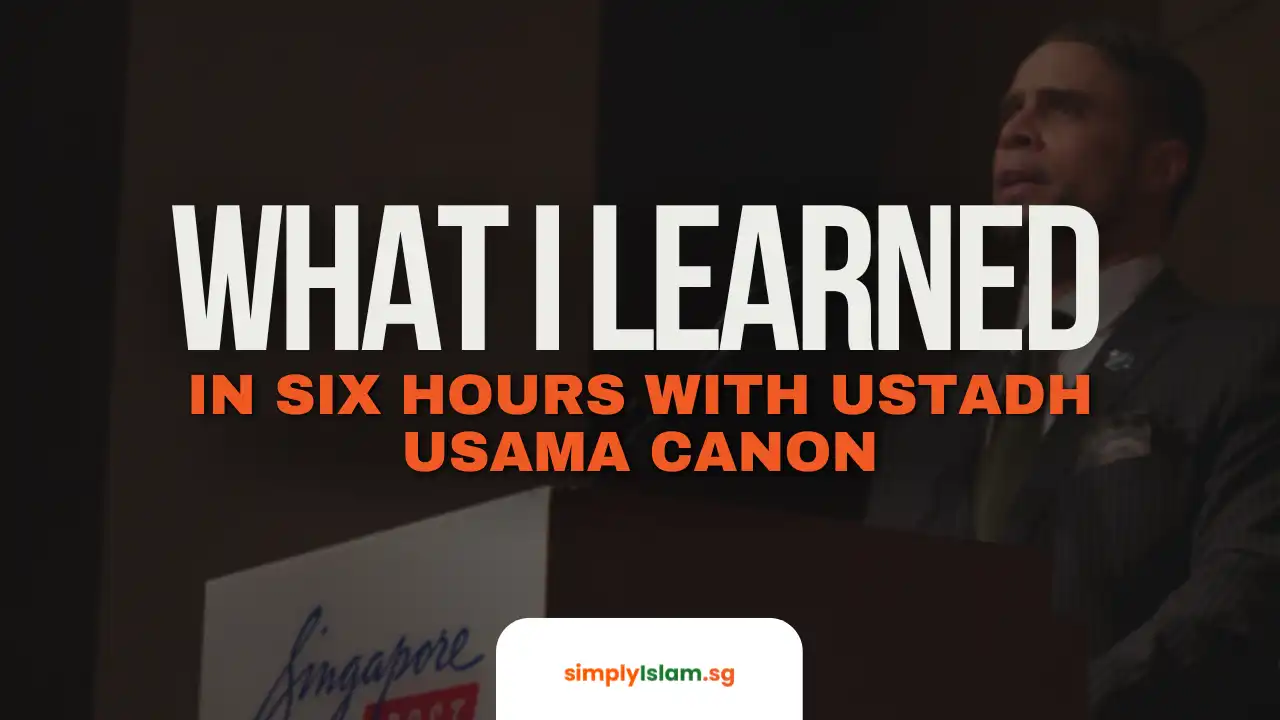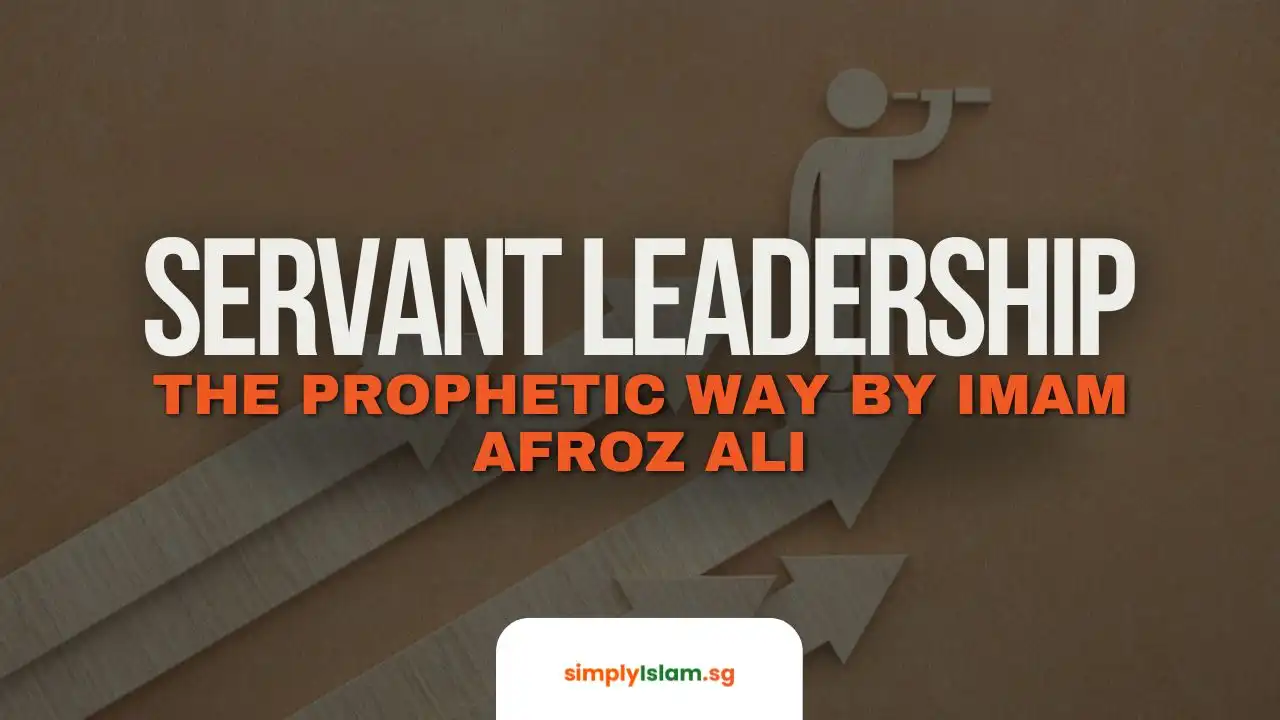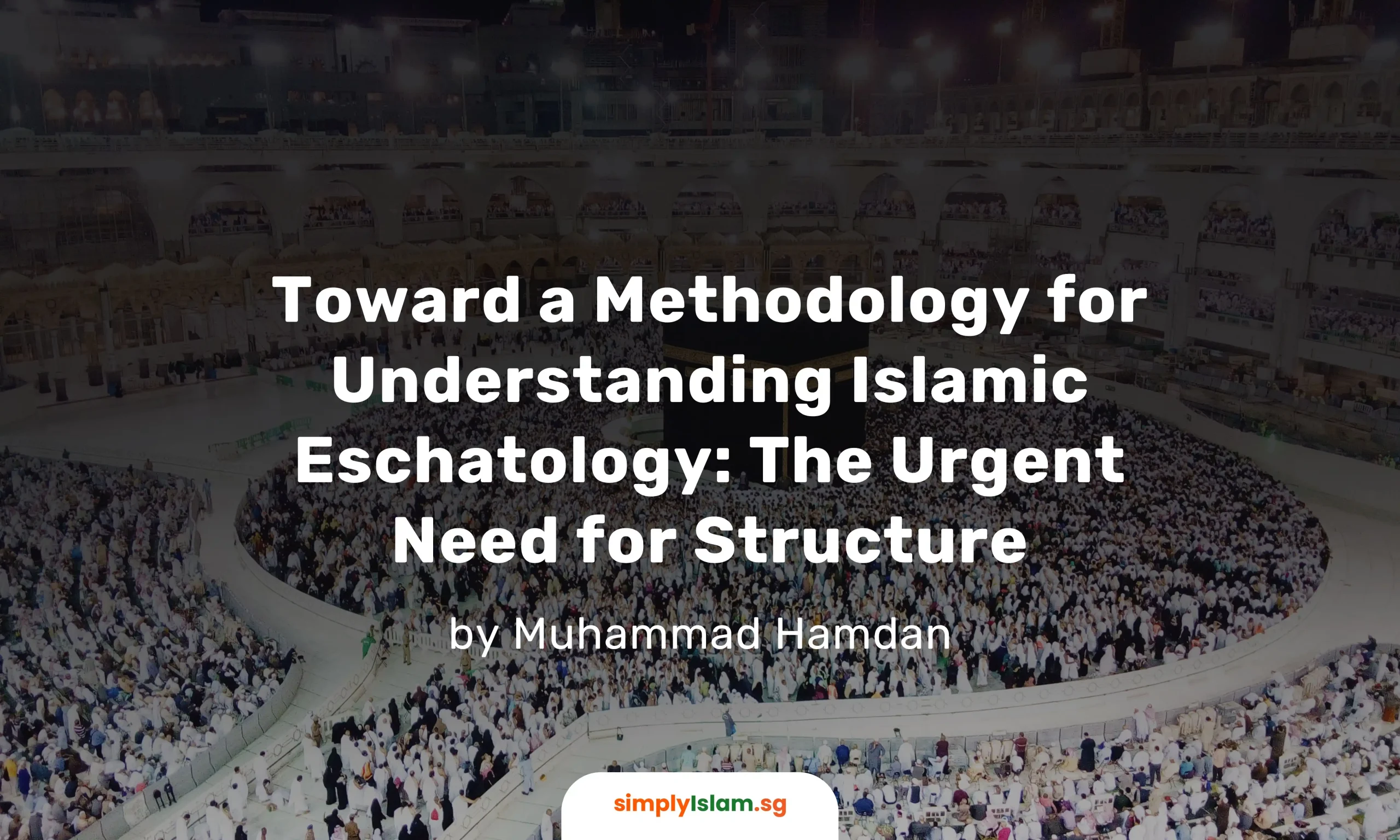
13 Things To Do During the First 10 Days DhulHijjah
He ﷺ Chose Mercy: Prophetic Responses to Hate, Hurt, and Hostility
Reflections for Singaporean Muslims
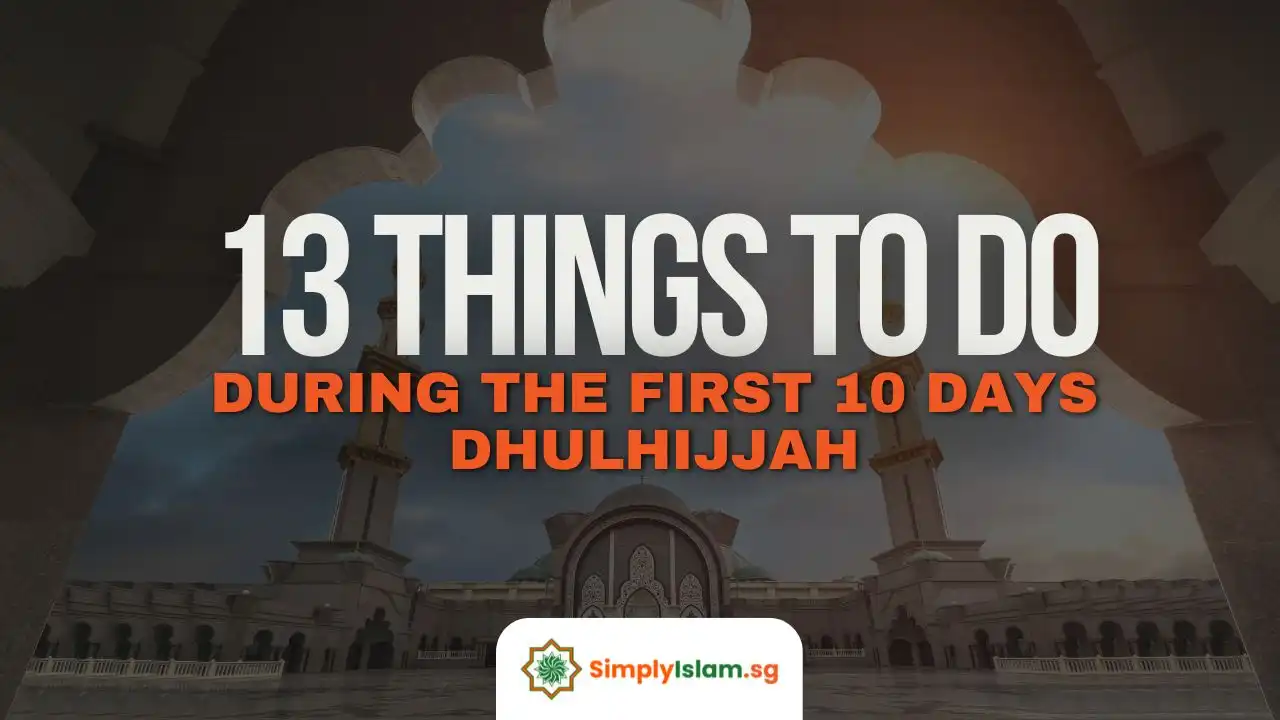
As we approach the blessed occasion of Eid Al Adha, we enter a holy period of the first 10 days of Dhul Hijjah. As much as we look forward to the day of Eid Al Adha, not a lot of people realise the importance of the first 10 days in Dhul Hijjah, which is essentially marked as a time of increased devotion and spiritual reflection.
As we delve into the many ways we can maximise good deeds in the first 10 days of Dhul Hijjah, let’s first understand the definition of Dhul Hijjah, and study the significance of this blessed time.
What is Dhul Hijjah and When is It?
The month of Dhul Hijjah holds a special place in the Islamic calendar, marked by heightened spirituality and devotion to Allah Almighty. It encompasses two significant events, which are Hajj and Eid Al Adha, reflecting our commitment to Islam.
What many may not realize is the unparalleled significance of the first ten days of Dhul Hijjah, surpassing even the holiest days of Ramadan.
Ibn Abbas (radiAllahu anhu) narrated that:
the Messenger of Allah said: “There are no days in which righteous deeds are more beloved to Allah than those ten days.” They said: “O Messenger of Allah! Not even Jihad in Allah Cause?” The Messenger of Allah said: “Not even Jihad in Allah’s Cause, unless a man were to out with himself and his wealth and not return from that with anything.” [Jami’ At-Tirmidhi]
In regards to when Dhul Hijjah usually falls in the Hijri calendar, Dhul Hijjah marks the conclusion of the Hijri calendar as its 12th and final month, standing alongside Muharram, Rajab, and Dhul Qa’dah as one of the four sacred months.
These months are characterized by increased blessings from Allah Almighty and abundant opportunities to accumulate rewards through righteous deeds.
13 Things To Do During the First 10 Days DhulHijjah
These days are especially blessed, with numerous opportunities for worship and righteous deeds. Here are 13 meaningful spiritual practices to make the most of this sacred period:
Fasting the 9 Days of Dhul Hijjah:
Follow the Sunnah by fasting these days, with the 9th day being particularly emphasized as the Day of Arafah. Fasting in general carries great rewards, but to perform it especially on sacred days? SubhanAllah, we can only imagine the great rewards and merits behind it.
Narrated Abu Huraira (radiAllahu anhu):
The Prophet (ﷺ) said, “(Allah said), ‘Every good deed of Adam’s son is for him except fasting; it is for Me. and I shall reward (the fasting person) for it.’ Verily, the smell of the mouth of a fasting person is better to Allah than the smell of musk.” [Sahih Al-Bukhari]
Reciting Tasbih, Tahmid, Tahlil, and Takbir Abundantly:
Engage in continuous glorification and praise of Allah Almighty through these expressions. The Prophet Muhammad (ﷺ) encouraged the recitation of these phrases during the first 10 days of Dhul Hijjah.
Here are the Adhkar you can recite:
Takbir:
اللهُ أكْبَرُ اللهُ أكْبَرُ لاَ إلهَ إلاَّ اللهُ وَاللهُ أكْبَرُ اللهُ أكْبَرُ وَلِلَّهِ الْحَمْد
Allahu Akbar, Allahu Akbar, La ilaha illallah, Allahu Akbar, Allahu Akbar, wa lillahil Hamd.
“Allah is the Greatest, Allah is the Greatest, there is no God except Allah, Allah is the Greatest, Allah is the Greatest, and all praise belongs to Allah.”
Tahmid:
ٱلْحَمْدُ لِلَّٰهِ
Alhamdulillah.
“All praises be to Allah.”
Tahlil:
لَا إِلَٰهَ إِلَّا ٱللَّٰهُ
La ilaha illAllah
“There is no god but Allah.”
Tasbih:
سُبْحَانَ اللَّه
SubhanAllah.
“Glory be to Allah.”
Offering the Qurban (Sacrifice):
One of the major highlights of Eid Al Adha is the act of offering Qurban, which symbolizes obedience and submission to Allah’s commands. This practice commemorates the willingness of Prophet Ibrahim (alaihi salam) to sacrifice his so Prophet Isma’il (alaihi salam) as an act of obedience.
It is mentioned in many parts of the Qur’an regarding the sacrifice:
37:102
فَلَمَّا بَلَغَ مَعَهُ ٱلسَّعْىَ قَالَ يَـٰبُنَىَّ إِنِّىٓ أَرَىٰ فِى ٱلْمَنَامِ أَنِّىٓ أَذْبَحُكَ فَٱنظُرْ مَاذَا تَرَىٰ ۚ قَالَ يَـٰٓأَبَتِ ٱفْعَلْ مَا تُؤْمَرُ ۖ سَتَجِدُنِىٓ إِن شَآءَ ٱللَّهُ مِنَ ٱلصَّـٰبِرِينَ
When the boy was old enough to work with his father, Abraham said, ‘My son, I have seen myself sacrificing you in a dream. What do you think?’ He said, ‘Father, do as you are commanded and, God willing, you will find me steadfast.’
فَلَمَّآ أَسْلَمَا وَتَلَّهُۥ لِلْجَبِينِ
When they had both submitted to God, and he had laid his son down on the side of his face,
وَنَـٰدَيْنَـٰهُ أَن يَـٰٓإِبْرَٰهِيمُ
We called out to him, ‘Abraham,
قَدْ صَدَّقْتَ ٱلرُّءْيَآ ۚ إِنَّا كَذَٰلِكَ نَجْزِى ٱلْمُحْسِنِينَ
you have fulfilled the dream.’ This is how We reward those who do good-
إِنَّ هَـٰذَا لَهُوَ ٱلْبَلَـٰٓؤُا۟ ٱلْمُبِينُ
it was a test to prove [their true characters]-
وَفَدَيْنَـٰهُ بِذِبْحٍ عَظِيمٍۢ
We ransomed his son with a momentous sacrifice,
وَتَرَكْنَا عَلَيْهِ فِى ٱلْـَٔاخِرِينَ
and We let him be praised by succeeding generations:
سَلَـٰمٌ عَلَىٰٓ إِبْرَٰهِيمَ
‘Peace be upon Abraham!’
Learn about the Virtues of Dhul Hijjah:
The initial ten days of Dhul Hijjah are commonly regarded as the finest ten days of the year and a subsequent opportunity following Ramadan. For those of us not participating in the Hajj pilgrimage this year, this period remains a significant time of blessings and substantial rewards.
Our thoughts and prayers are directed towards those embarking on the sacred journey of Hajj during these days. While many of us are unable to undertake this blessed pilgrimage this year, there are still numerous avenues for us to receive the blessings of this month.
وَٱلْفَجْرِ
By the Daybreak,
وَلَيَالٍ عَشْرٍۢ
by the Ten Nights [Qur’an 89:1-2]
As indicated by numerous scholars of the Qur’an, the days mentioned with enough significance for Allah to swear by them are the initial ten days of Dhul-Hijjah.
Give in Charity:
Practice generosity by donating to those in need. The act of giving charity during these blessed days is highly meritorious and brings immense blessings.
مَّثَلُ ٱلَّذِينَ يُنفِقُونَ أَمْوَٰلَهُمْ فِى سَبِيلِ ٱللَّهِ كَمَثَلِ حَبَّةٍ أَنۢبَتَتْ سَبْعَ سَنَابِلَ فِى كُلِّ سُنۢبُلَةٍۢ مِّا۟ئَةُ حَبَّةٍۢ ۗ وَٱللَّهُ يُضَـٰعِفُ لِمَن يَشَآءُ ۗ وَٱللَّهُ وَٰسِعٌ عَلِيمٌ
Those who spend their wealth in God’s cause are like grains of corn that produce seven ears, each bearing a hundred grains. God gives multiple increase to whoever He wishes: He is limitless and all knowing. (Qur’an 2:261)
Practice Gratitude:
Take time to reflect on your blessings and express gratitude to Allah the Most Compassionate, the Most Merciful. Gratitude is a fundamental aspect of faith and draws us closer to our Creator. You can download some useful apps here to practice mindfulness and gratitude.
Offer More Sunnah Prayers:
Increase your devotion by engaging in voluntary prayers beyond the obligatory ones. These additional prayers bring spiritual benefits and strengthen our connection with Allah. Some of the Sunnah prayers you can offer are Tahajjud prayer, Nawafil prayers and more.
Reflect & Make Du’a:
Set aside moments of solitude to reflect on your spiritual journey. Use this time to make heartfelt supplications (du’as) to Allah, seeking guidance, forgiveness, and blessings.
Prepare for Eid:
Get into the festive spirit by preparing for Eid celebrations. This includes getting ready with neat and beautiful clothes, preparing special meals, and engaging in acts of kindness and joy with family and friends.
Read Qur’an:
Dedicate time each day to reciting and reflecting on the teachings of the Qur’an. The Qur’an is a source of guidance, wisdom, and comfort, and its recitation during these blessed days is highly rewarding.
Perform Eid Prayer and Listen to the Khutbah:
Attend the Eid prayer with humility and attentiveness. Listen to the Khutbah (sermon) delivered by the Imam, which often contains valuable reminders and guidance for the community, especially in relevance to the topic of sacrifice.
Perform Hajj and Umrah if You Have the Opportunity:
If you are blessed with the opportunity and means, undertake the sacred pilgrimage of Hajj ‘Umrah. These acts of worship are among the most significant in Islam and bring immense spiritual benefits.
Make Lots of Salawat:
Send abundant blessings and peace upon the Prophet Muhammad (ﷺ). Engaging in the practice of Salawat deepens our love for the Prophet ﷺ and strengthens our connection to the prophetic tradition.
By actively engaging in these 13 activities during the first 10 days of Dhul Hijjah, you can enrich your spiritual journey, draw closer to Allah Almighty, and experience the blessings and rewards of this auspicious time.



